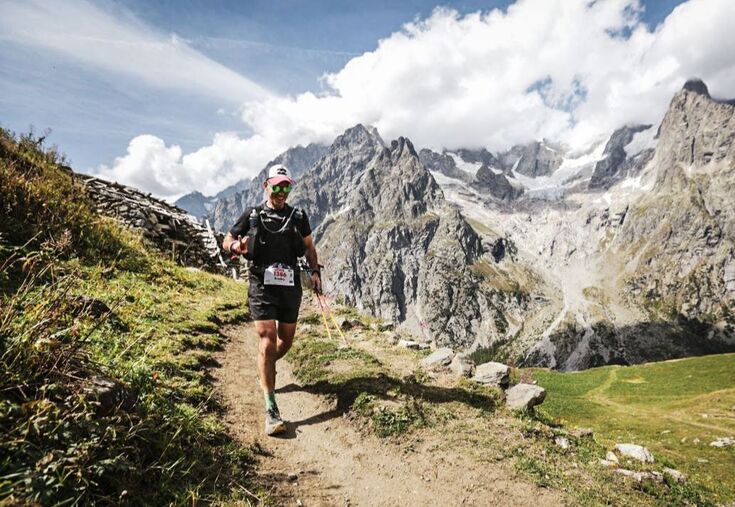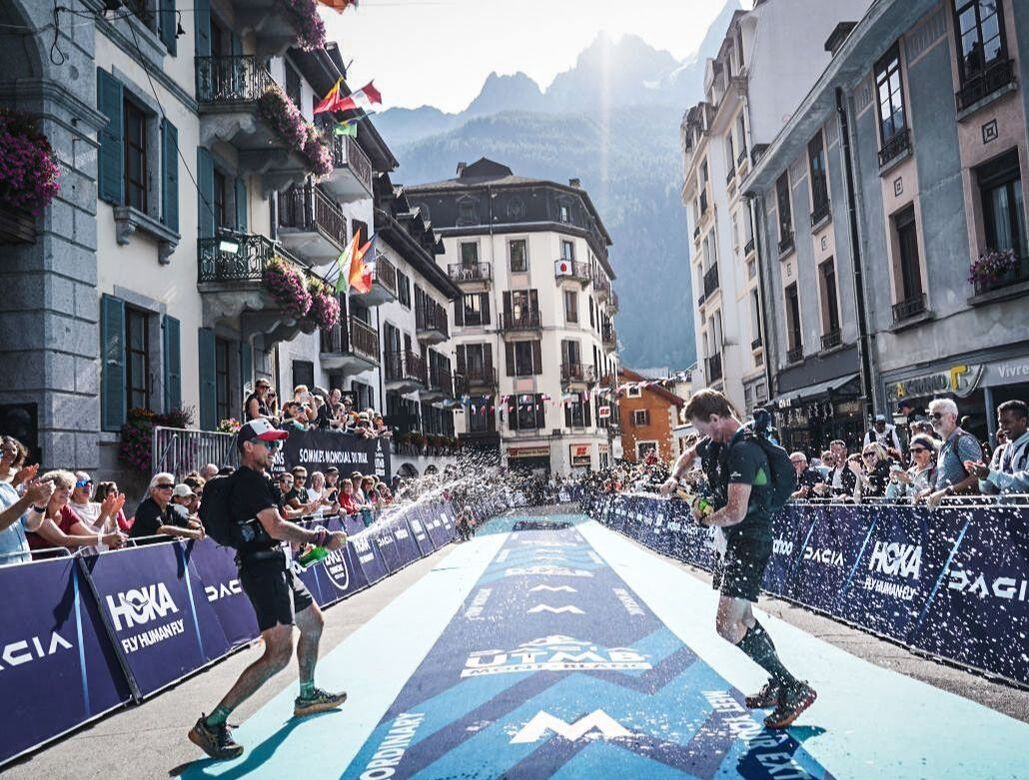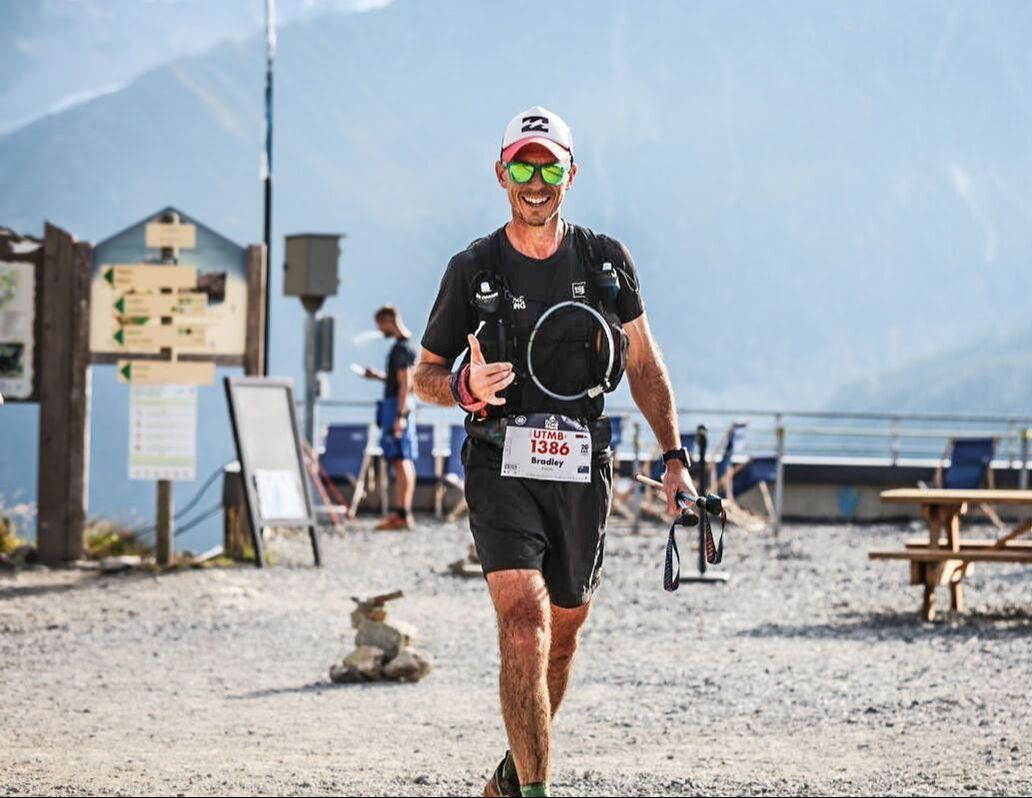|
In September 2023, our Emu Trekkers guide Brad Phillips was one of the few Australians to complete the Ultra Trail du Mont Blanc (UTMB) in Chamonix, France. We sat down with Brad to hear more about his wild (perhaps crazy) experience. Brad, last week I logged onto Strava and saw that you had gone for a run. But this was not your average run. You ran 181km in 40 hours in the European Alps and climbed almost 10,000m of elevation. That is the equivalent of around 4 marathons back to back, ascending more than the entire height of Everest. Can you tell me a little bit about this race and what inspired you to take on such a crazy adventure? I certainly had plenty of time to think about that while I was out there. The UTMB is such an iconic event and the premiere ultra marathon in the world. It's a 100-mile trail running race with 10,000m of elevation gain and you have 46.5 hours to complete it. Crazy for sure! I have a few reasons for wanting to do it: - Firstly, I love being outdoors in nature and the trail around Mont Blanc has always been something I've wanted to experience. Now there's a far more civilised way to do that by taking a 10-day hiking trip but this is the express experience if you like. - Secondly, when you get into any sport that you love you tend to seek out the pinnacle event or experience in that sport and this race is definitely the pinnacle of trail running. - Finally, I think our bodies are remarkable things and allow us to accomplish so much. Seeing whether I could do this and get fit enough and strong enough to complete a race this hard was appealing to me. How do you prepare for such a thing? I imagine you run a lot as part of your training, but what do you do in the day or two leading up to it? It's difficult in Australia because we just don't have the sort of mountainous terrain that you experience in the race. The best thing you can do is have a long and consistent build-up of trail running and strength training. I had a couple of years of trail running under my belt and then approached this race with a 16-week program focused on getting as much elevation as possible each week. I ran 5-6 times a week or about 10-12 hours of running. My biggest week was 105km and about 3,000m of elevation gain. I aimed for two strength training sessions a week of about 20-30 mins each with plenty of stretching and foam rolling in there too. My approach to training is to find the minimum effective dose and make sure I still have time for my relationships, work, and other interests. There are some wonderful runners and coaches in the community who share their experience and expertise to help people like me prepare for challenges like this so training plans, nutrition advice, strength and mobility programs are readily available. In the week of the race itself, it's all about resting and conserving energy. Get as much sleep as you can, eat well, do a couple of gentle runs, and I definitely don't recommend taking a round-the-world flight to Europe via the US to get there 3 days before. It wasn't ideal but it's a long way from Sydney to Chamonix! So how did you find the experience? Was it as easy as it looks? The experience was beyond what I imagined. In 40 hours I experienced just about every emotion. The length and gradient of the climbs and descents are just absurd. I think not realising how hard they were beforehand was helpful. This was my first 100-mile race so I was also naive to the experience of spending more than 14 hours out on a trail including 2 full nights without sleep which is totally bonkers. I think it helped not knowing what that would feel like. The video of you at the finish line shows you popping champagne and jumping around hugging your mate. What was the feeling like at the moment? My running mate Andy came up with that idea late on the Saturday night and it relied on his wife Nay sourcing 2 bottles of champagne (cheap and warm is fine we said haha) Sunday morning and meeting us near the end to hand them off. It was the perfect way to celebrate the moment...the joy, the fatigue, the relief, the madness of it all. It made for good TV as well :) What happens when the adrenaline stops after the race? Do you just go to sleep for the next two days?
You really want to see the last people finish and cheer them home. So we had time for a hot shower and a quick nap before heading back to the finish line for a beer and to cheer on the other runners. Once all the fanfare is over it's sleeping and eating for the next few days to recover and nurse the sore feet. What tips do you have for people wanting to get into trail running? Start simple. You don't need to go and buy any new gear or drive an hour into the bush when you're starting out. Find a trail near where you live and incorporate it into your next run. Enjoy being in nature and try not to trip over. I dare you not to become addicted. If you're a hiker and keen to start trail running, it's a really natural progression. For much of the race, I was hiking briskly, not running. We averaged about 5km an hour so it's really about building your confidence to go a bit quicker on the trails and negotiate rocks and steps and tree roots safely. And if you need some company, we're trialling a new experience soon at Emu Trekkers for people new to trail running, so stay tuned.
1 Comment
Peter Unwin George Wall
22/9/2023 02:49:08 pm
What a Legend
Reply
Leave a Reply. |
AuthorsThese news updates are proudly written by Emu Trekkers' volunteer team. Categories
All
Archives
September 2023
|
ABOUT |
TREKS |
Emu Trekkers is registered as a charity with the Australian Charities and Not-for-profits Commission and is endorsed as a Deductible Gift Recipient (DGR).
ABN 82614391614.
ABN 82614391614.
© Emu Trekkers - Hike Australia. Help Kids. 2024.



